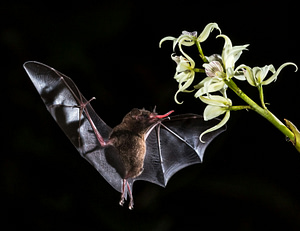Although they’re located on opposite sides of the planet and have very different cultures and customs, the Netherlands and Taiwan have plenty in common. Both are roughly the same size, are densely populated, and see the Circular Economy as an emergent guiding light for economic and environmental policy.
Both the Netherlands and Taiwan are fortunate to have the resources to make big steps. The Netherlands’ environmental efforts have been recognized as being more successful thus far, ranking 36th in the 2016 Yale University Environmental Performance Index (EPI), compared with Taiwan’s 60th. But the EPI primarily measures how a country is doing on environmental metrics like air quality, forest management, etc., and doesn’t account for things like the activities of companies or the “resource footprint” of cities, which are equally significant.
Both countries are taking a leading role on circularity domestically, with numerous initiatives from government and the private sector aimed at encouraging circular urban planning, reducing and reusing waste flows, and stimulating green energy.
Although the island nation has made strides over the years in transitioning its economy, it still faces significant challenges that range from a dependency on imported fossil fuels and high waste incineration rates, to periodic water shortages and a declining food production sector. Taiwanese officials aim to overcome these challenges in part by pursuing circular economic policies.
Eva Gladek made Metabolic’s 4th trip to Taiwan in order to participate in the 2016 International Forum of Circular Economies and Resilient Cities, a forum organized by the Environmental Protection Agency of Taipei. Taiwan’s government is keen to work with the Netherlands and learn from its early forays into circular thinking. Metabolic has been working with Taiwanese governing bodies, non-profits like the Taiwan Circular Economy Network (TCEN), and private sector organizations to help them identify promising approaches.
The forum sought to further global collaboration and encourage knowledge dissemination by bringing together representatives of cities to discuss how they are achieving circularity and tackling climate change-related issues. Although environmental challenges are global, cities are the engines of our economic metabolism and therefore a clear leverage point and focus for intervention. To be expected, each city represented at the forum had its own set of unique challenges in regard to sustainability and the environment. On a more micro level, looking at these challenges contextually, you could argue that solutions to them should vary accordingly.
Overall, the forum was a platform for collaboration, sharing of technologies, and introducing innovative ideas. As a representative of the Netherlands, Eva had the opportunity to share Metabolic’s successes and contributions to the development and implementation of circular systems, notably the cases of Buiksloterham and De Ceuvel. The relationship between Taiwan and the Netherlands has been growing steadily over the past couple of years, and with continuing opportunities for global collaboration, achieving a truly circular economy is becoming more and more realistic. Metabolic looks forward to working with Taipei and other Taiwanese cities to achieve ambitious goals and to assist Taiwan’s for-profit and non-profit sectors make the right steps towards a more circular society.






